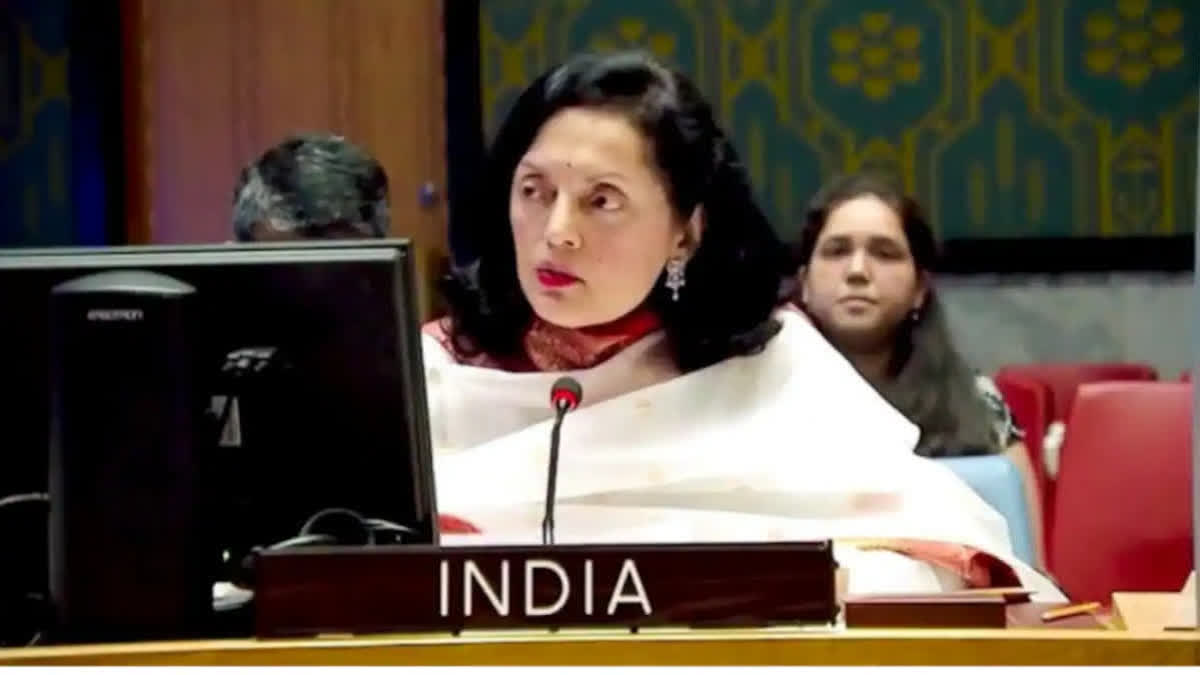New Delhi:India reiterated its food support to Myanmar, Afghanistan and Sri Lanka at the United Nations Security Council open debate on famine and conflict-induced global food insecurity. Addressing the meeting, which took place under the US chairmanship of the body, Indian ambassador to UN Ruchira Kamboj said, “India has always been proactive in assisting our partners in times of distress. Even in the middle of the Covid-19 pandemic, India provided food aid in the form of thousands of metric tonnes of wheat, rice, pulses, and lentils to several countries, including in our neighbourhood and Africa, to strengthen food security".
“In view of the deteriorating humanitarian situation in Afghanistan, India commenced the donation of 50,000 metric tonnes of wheat to the people of Afghanistan. Similarly, India has continued its humanitarian support for Myanmar, including a grant of 10,000 tonnes of rice and wheat. We have also assisted Sri Lanka, including with food assistance, during its difficult times. All these were in keeping with our foreign policy priority of “Neighbourhood First” and our firm belief in the abiding ethos of Vasudhaiva Kutumbakam, the world is one family”, she said.
Kamboj highlighted that the global food insecurity situation is daunting, with an increasing number of people facing acute food shortages over the past four years. She said, “According to the UN estimates, 362 million people in 62 countries require humanitarian aid, a record high. In a world ridden with ongoing armed conflicts, food, fertilizer and energy crises pose significant challenges, especially for countries in the Global South. The solutions lie in collective global action, as no single country can handle these challenges alone”.
Also read:'Russia's pullout from Black Sea Grain Initiative bodes ill for world food security'
She called for the need to find common solutions through dialogue and diplomacy and pointed out that choosing peace, cooperation, and multilateralism is essential for building our collective future. Strengthening the international architecture and governance systems to protect the Global Order, Global Laws, and Global Values is a shared responsibility. “Addressing the growing food grain shortages requires us to go beyond current constraints. India is committed to playing its part in addressing contemporary global challenges, as reflected in our membership in the Champions Group of the Global Crisis Response Group. India supports the efforts of the UN Secretary-General in continuing the Black Sea Grain Initiative and hopes for an early resolution to the present impasse. Recent developments in this matter have not helped in securing the larger cause of peace and stability”, Kamboj said.
